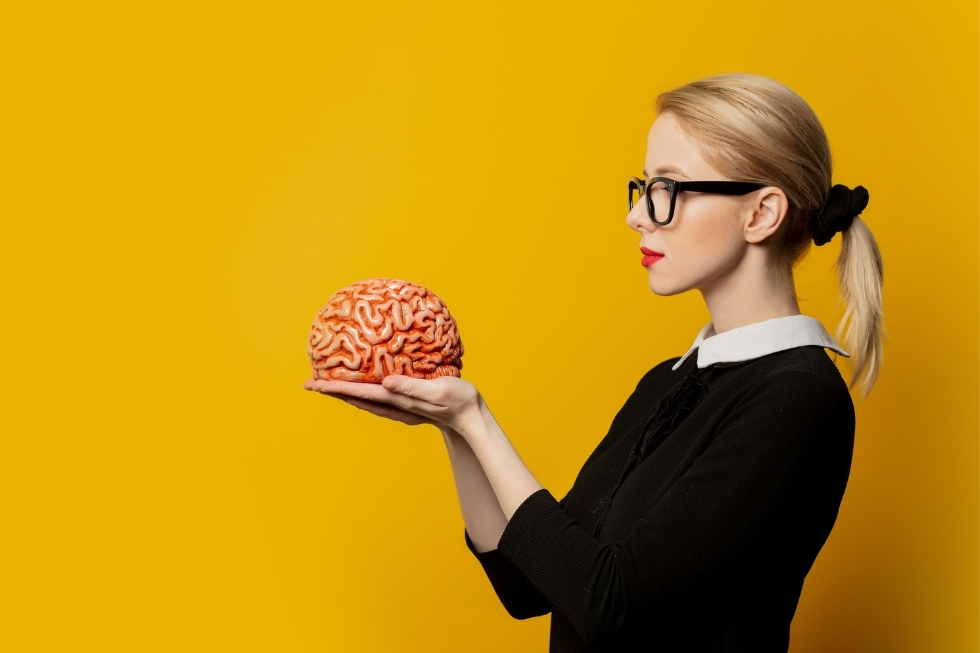It begins to age when you’re 25 and once you get to the age of 28/30, you are losing 100,000 neurons a day, on average. A figure that might seem a little less frightening if you consider that our brain has about 100 billion neurons… Anyway, the human brain does age rather quickly, but there is a good piece of news, especially for women, whose brains tend to remain “younger” than men’s brains, by at least three years.
More good news: there are people – known as superagers or greenagers – who experience less cognitive decline. And also bear in mind that there is a way to boost your mental efficiency, especially if you act in time, thus helping the brain to age less.
Brain efficiency drops by 1% per year, to the point that, by the age of 50, we lose 20% of its capacity, while at the age of 80 our cognitive abilities have dropped by 50%. But it’s also true that if we train certain cognitive abilities, we can reduce cognitive decline.
Just like the rest of our body, the brain ages too. The first sign is forgetfulness, which is not due to memory-related issues, rather to attention deficit. It happens when you get distracted, because the inhibiting mechanisms that hold off external stimuli become less efficient. Already at the age of 30 one can get distracted, forget things, be lost in thought or fail to follow a procedure in the best possible way because it was not properly planned. But mental exercise, just like physical exercise, can slow down this process.
The first alarming signals can appear even before the age of 40. Typical signals follow: it becomes more difficult to learn and memorise new information. In fact, after the age of 40, you need more time to learn something new, because the speed of information processing slows down. Speech becomes slower after the age of 50, and this gets worse in the years that follow (and it’s one of the major symptoms of brain ageing). Suffice it to think that, when asked to list as many words as possible starting with a specific letter, you can list 22/23 when you’re aged 50-55, 18 when you’re 60, 14 when you’re 70 and 10 when you’re 80. The same goes for prose memory, namely, the ability to learn. If a 50 year-old reads a newspaper article that features 30 key elements, they will recall 17 of them (13 at the age of 60 and seven at the age of 70, according to research).
Differences in cognitive decline are not solely linked to age, but also to sex. Several US studies have shown that men age more quickly than women. A man’s brain is, on average, less performing than a woman of the same age. Studies show that this ‘brain age difference’ can be as much as 5 years. The reason is that women are protected by oestrogens until they reach menopause, hence their ‘loss’ is reduced.
So what does menopause do to us? At its onset, oestrogens drop and so does the protection they ensured against ageing. Such a process involves men too, as testosterone levels fall. Late Onset Hypogonadism (LOH) usually appears after the age of 50; male hormone levels drop and the risk of diseases linked to ageing increases.

Recent Comments